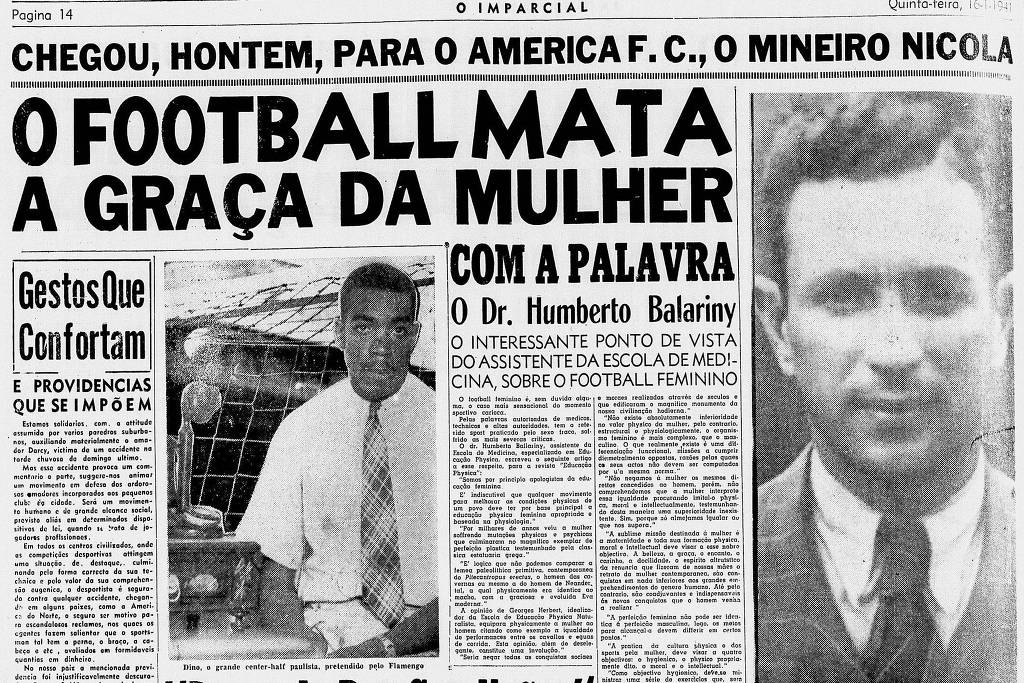From invisibility to conquering space within the four lines. From manhood to women’s empowerment. Learn about the history of fighting misogyny in Brazilian women’s football
Photo: Thaís Magalhães/CBF
By Camille Rodrigues
In times when women’s empowerment is a permanent agendaPhrases like “Football is not for women” are still said without any sign of embarrassment. Even with the regulation of women’s football in Brazil in 1983, there was still a prejudice against women’s performance in the most diverse sports.
survey conducted sig magazines, In the UK, he notes, men are the majority among football fans when it comes to overtly misogynist attitudes, scoring at 68%. Progressive attitudes are also strongly represented, at 24%, but not as common as hostile and sexist attitudes. The last place, at 8%, is occupied by shy misogynists, who hide their prejudiced attitudes.
But there is still hope for better days! Every day, the players of the Brazilian national team take part in the fight against misogyny and masculinity, for gender equality. The efforts have borne fruit. This is because the 2023 World Cup will be the first tournament to have the same daily rate and prizes for women and men in the national team. “The CBF introduced equal values in terms of prizes and daily value between men’s and women’s football. In other words, female players earn equal to men. What they receive on a daily basis, they also receive,” said the retired president of the CBF, Rogero Langanke Caboclo, in an interview with CNN Brazil.
The decision was made after the 2019 Women’s Cup, and featured a position Queen Marta Silva, in favor of gender equality. “We are globally committed to achieving gender equality by 2030. There is a lot to do in such a short time, ”emphasized the athlete during the Olympic Committee ceremony at the time. Elected six times the best soccer player in the world, Marta has been one of the four UN Sports Ambassadors for Gender Equality since 2018, becoming the first Latin American woman to receive the title.
Women’s football in Brazil: a manly history
Historically, the practice of soccer by women was frowned upon on Brazilian soil. At the end of the 19th century, when women started playing soccer on Brazilian soil, men were already very popular with this sport. Thus, football has come to be seen as an extreme sport and a symbol of man’s strength and masculinity.
At that time, women who played this sport were judged by how rude and inappropriate they behaved. As a result of insisting on playing football, Getúlio Vargas created in 1941, during the Estado Novo, Decree 3.199 / 41 which contained, in Article 54, the following passage: “Women are not allowed to play sports that are contrary to the conditions of their nature”.

Article in the newspaper “O Imparcial”, 1941, about women’s football – National Library Foundation Collection – Brazil
It doesn’t stop there! Since the document did not mention the sport that was involved, at the height of the military dictatorship, in 1965, a new decree was issued to limit the practice of football or any violent sport among women. She stated that “women are not permitted to practice martial arts of any kind, soccer, indoor soccer, beach soccer, polo, weightlifting, and baseball”.
This means that just over 40 years ago, a woman who dared to play soccer was breaking the law. The ban was lifted only in 1979 and the sport was regulated in our country only in 1983. A decisive factor in the devaluation of women’s football to this day.
Women’s resilience and empowerment
Despite all the obstacles imposed by the patriarchy, the players of the Brazilian national team shine and encourage other girls to play soccer. Check out some of them!
We built it up
One of the greatest stars of the national team, top scorer He was nominated for Player of the Year this year before FIFA (International Federation of Football Associations). Collecting prizes, the player elected the best player in the award decision most valuable player (MVP) in 2019, when she emerged in the trophy, inspiring other women to become a reference in soccer.
🎙 Raise your voice my scorer!
I’m very proud! Check out the private message from @dbinha7who was previously nominated for the Most Valuable Player Award FIFAcom! 💚💛 pic.twitter.com/L8QgKthk0m
Women’s National Football Team (SelecaoFeminina) January 12, 2023
ant
A black woman and the owner of one of the greatest careers in the history of women’s soccer, the midfielder is an example of representation within the team, having been involved in almost all generations of the national team, since its growth in the early 1990s.
Marta
The soccer queen launched clothing brand Go Equal at the World Cup to encourage women in the sport. The intention is to continue the legacy she built on the field, and to promote more space for women within the four lines. “What we want here is to encourage more women to play sports,” she said during an interview with CNN Brasil. The first collection of the sportswear brand will be sold on the Centauro website and app and on the Studio78 website.
Text produced in collaborative coverage by NINJA Esporte Clube

“Food fanatic. Organizer. Hipster-friendly tv specialist. Avid reader. Devoted web ninja.”


